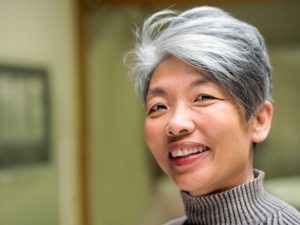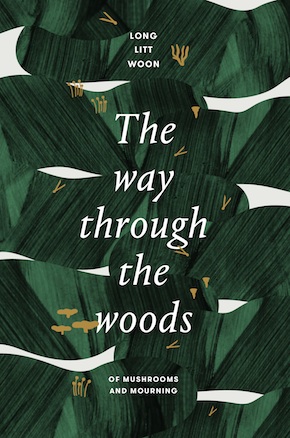The next best death
by Long Litt WoonDeath came for Eiolf early one bright summer morning. Before he had got as far as his office. Before he had got as far as putting on the water for his coffee and dumping his heavy shoulder bag. As usual, he was one of the first to arrive. It was the last time he would ever go to work, but how could we have known that? This man, at the midpoint of his life. Or so we thought.
Eiolf died suddenly. So suddenly that I still wonder whether he was aware of what was happening. Did he realise that this was it, that his allotted span had run out? Did he understand that he had reached the farthest shore? What was his last thought? Was death as he had imagined it would be? Was he drawn, slowly and surely, towards a brilliant light? Was the radiance of that light warm and intense, like being in love, like one of the most wonderful experiences anyone can have?
Fortunately, a few other people had also come in early that morning. One of his colleagues saw Eiolf fall. At first he thought he had just tripped, but he very quickly realised that something was seriously wrong. Once Eiolf had been driven away in the ambulance, this colleague called me. I was awake, just out of the shower, and about to start the day with a leisurely breakfast. Before I’d had a chance to digest this absurd message the telephone rang again.
The voice on the other end was not one I knew. It was the doctor from the hospital. I was still a bit dazed by the first call from Eiolf’s colleague.
‘I’m afraid I have bad news,’ the doctor said.
My heart froze.
‘Your husband is dead. I’m so sorry,’ the doctor went on, steady as a metronome.
Out of the blue, word of his death hurled slap in my face.
‘How? What? —’ I scarcely remember what I said.
‘Your husband lost consciousness immediately. He didn’t feel a thing,’ the doctor said.
I said nothing. I didn’t know what questions to ask.
‘It’s the best death any of us could wish for,’ he added.
I felt a wave of protest rise up inside me and stick in my throat. I didn’t agree, not at all, but I found it impossible to speak. The doctor may have been trying to comfort me by saying this. But I was in no mood for bureaucratic solace. I am firmly convinced that the very best way to die would be to be fully conscious, without any acute pain, and to be granted a period of grace in which to say a proper goodbye. It isn’t only one’s nearest and dearest who need this. The person departing this life needs it too. Concluding a life takes time.
The doctor may have been trying to comfort me but I am firmly convinced that the very best way to die would be to be fully conscious, without any acute pain, and to be granted a period of grace in which to say a proper goodbye.”
I felt as though someone had whacked me with a massive sledgehammer, the heaviest there is. The room was spinning. I had to sit down. I broke out in a cold sweat. Inside me, chaos reigned, a state of emergency had been declared. I felt sick. Was I dreaming or was I awake? How can he be dead, this man who I had always expected to outlive me? Only a few hours earlier, there had been two of us, sharing a life. It had always been us two, ever since I was 18 and Eiolf was 21. Now he was in the emergency unit at Ullevål Hospital. Dead. So alive one moment. So dead the next. Only a heartbeat separating the one state from the other. My best friend was gone. I was alone in the world.
I didn’t want to hang up the phone; I pressed it even harder to my ear. I wanted the doctor to go on talking. No detail would be too small. Everything he could tell me about Eiolf was of the greatest interest. The doctor was my only link to the brutal fact that had skewered me that morning. I think I may have forgotten to breathe. Eiolf was the reason I had changed my plans for my adult life and moved to Norway from Malaysia. I would never see him again, never speak to him, smell him, hold him. It made no sense. That telephone call had sliced my life in two. By the time I hung up the phone my old life was no more.
Any long marriage has only two possible endings: divorce or death. Ours ended when Eiolf died. Death is absolute: either you’re dead or you’re not. What separates the one state from the other are a myriad slender, transparent threads. Sometimes these threads are supple, sturdy, and strong, and prevent one from crossing over to the land of the dead. We’ve all heard stories of individuals who cheat death, who are saved at the last moment, against all the odds. Almost every day you read of such miracles in the tabloids. But sometimes the threads are delicate and fragile. They fall apart and crumble away to nothing if you so much as look at them. Then the path from life to death is brutally short. Then you step off the knife-edge of life and are gone. And there’s no way back.
They were waiting for me. They knew who I was there to see. But I wasn’t allowed to go to Eiolf straight away. First, a nurse took me into an office to have a word with me. I think they wanted to prepare me and calm me down. I was handed some cold water in a plain paper cup. I drank the water without giving any thought to whether I was thirsty or not. After a little chat the nurse asked me to follow her. We walked along some corridors and stopped in front of a door on the same floor. She opened the door, and there lay my husband, under a duvet, for all the world as if he were asleep. Even though I’d known we were going to see Eiolf I was surprised to suddenly come upon him there. The bed linen was fresh, there were flowers and lit candles. The room had an air of solemnity about it, one which spoke of a reverence for death, and for life.
I had imagined having to go down into a cold, dark basement. I had pictured Eiolf lying all alone on a cold steel trolley, with a sheet pulled up over his face. But here he was, as if asleep, so peaceful in a newly made bed. My legs gave way and
I collapsed into an untidy heap on the floor. I was shaking all over. I could hear my pulse pounding fit to burst. Again and again I begged Eiolf to wake up, but he made no response. The nurse averted her eyes, perhaps to give me some privacy at this agonising moment? But I didn’t care about her. I wanted so much to hold him and touch him. I ran my hand over the smooth sheet under the duvet and rested it on him. He was still warm! That I hadn’t expected. I felt a sudden flush of gratitude. He had waited for me! I had managed to get to him before he grew dead-cold and unreachable.
Although I knew Eiolf was dead, it was still hard to comprehend. Maybe the doctors had got it all wrong. Maybe the age of miracles wasn’t past. Maybe he would wake up and smile. Maybe next time I blinked he would slowly open his eyes, look at me, and say one of those things that only he could say.
I blinked. He didn’t wake up. Life stood still. There was nothing for it but to bury my last mad shred of hope.
From The Way Through the Woods: Of Mushrooms and Mourning (Scribe, £16.99)
 Long Litt Woon is an anthropologist and Norwegian Mycological Association-certified mushroom professional. Born in Malaysia, she first visited Norway as a young exchange student, where she met and married Eiolf Olsen. She lives in Oslo. The Way Through the Woods, translated by Barbara Haveland, is published by Scribe in hardback.
Long Litt Woon is an anthropologist and Norwegian Mycological Association-certified mushroom professional. Born in Malaysia, she first visited Norway as a young exchange student, where she met and married Eiolf Olsen. She lives in Oslo. The Way Through the Woods, translated by Barbara Haveland, is published by Scribe in hardback.
Read more
facebook.com/longlittwoon
@LongLittWoon
Author portrait © Johs. Bøe


